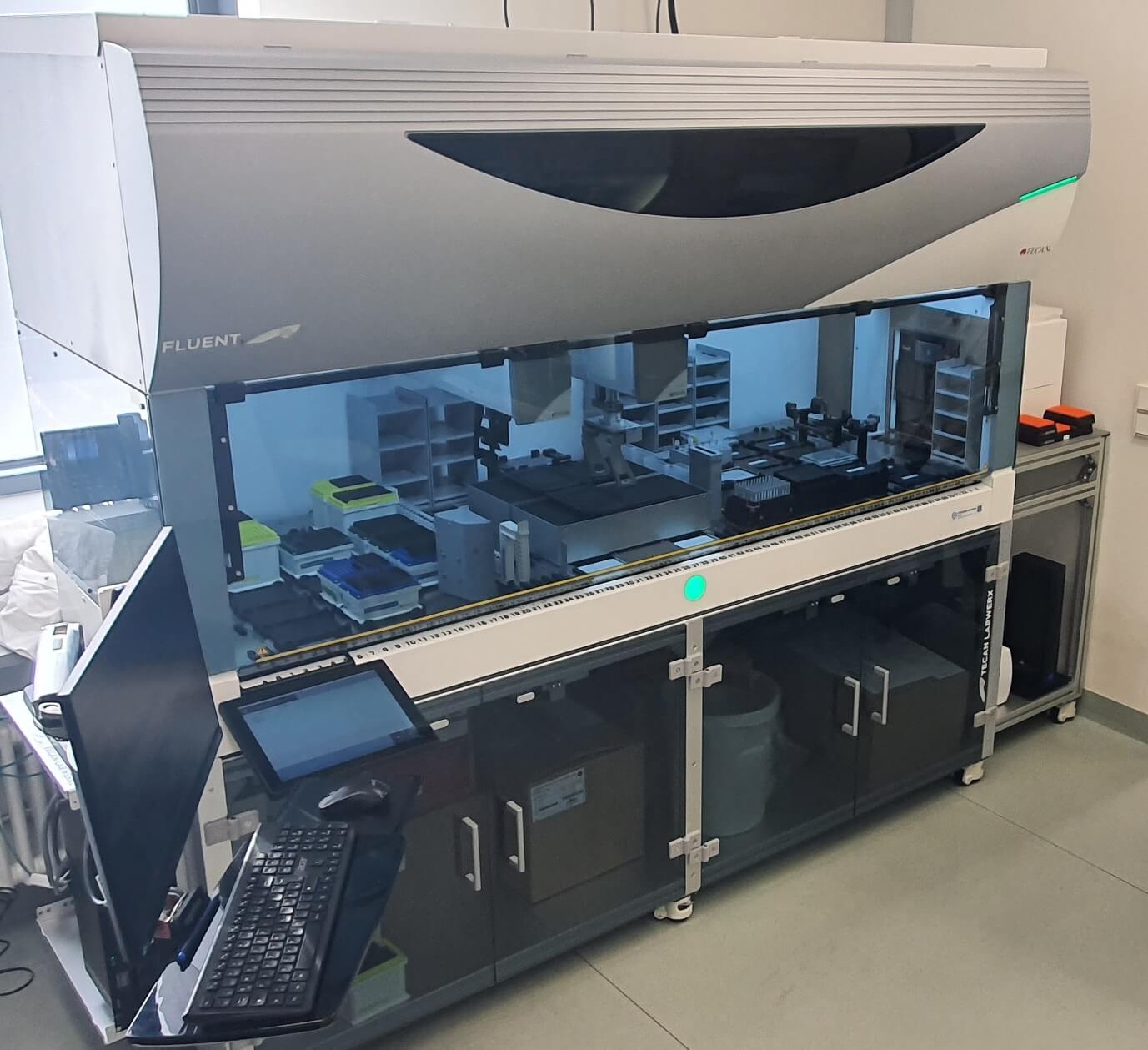Tecan uses cookies to improve our website. By continuing to browse our website, you accept our cookie policy.
Tecan uses cookies to improve our website. By continuing to browse our website, you accept our cookie policy.

The origin of the word forensic can be traced back to ancient Rome when suspected criminals and their accusers would present their cases publicly in the Forum. Today it invariably takes more than skillful argumentation to decide innocence or guilt in a court of law. The discipline of forensic science aims to support legal decision-making in a wide variety of criminal and civil investigations. Like other branches of the life sciences, forensics have been revolutionized over the last few decades following the advent of PCR and other DNA-based technologies.
This can be clearly seen in Germany, for example, where each of the 16 federal states has its own forensic laboratory. In the State of Hessen, the Hessian State Office of Criminal Investigation (Hessisches Landeskriminalamt – HLKA) is located in Wiesbaden. The lab supports investigations into serious crimes with precise DNA forensic analysis. Cases usually originate from the Hessen region, but when necessary, the laboratory also supports other German states. Samples can include almost anything, from traces of blood and other bodily fluids to hair and skin flakes, and all the analyses take place in the specially equipped molecular biology laboratory.

“Within our lab we have two main work areas,” explains Dr. Felix Schilz, Biology Director at HLKA. “We have a manual work area for the most serious crimes such as murder and sexual assaults, where individual bespoke processing is necessary on low amounts of sample with high urgency. However, where processes can be standardized, we have an automated work area allowing rapid DNA analysis with benefits such as contamination-free processing and positive sample identification to eliminate any mix-up errors. We call this area the DNA street!”
The collaboration between HLKA and Tecan on the “DNA street” goes back to 2007 when accreditation of DNA laboratories was becoming a necessity in Europe. At that time, Tecan provided the only accredited forensic platform available in Germany, a combination of the Freedom EVO® liquid handler, specific software and DNA extraction reagents provided by Thermo Fisher. Over the years, the partnership with Tecan deepened. “Tecan supported us very competently when we faced small errors along the way and in 2014, when we had a more significant technical challenge, we were satisfied with the quick and complete support by Tecan,” continues Felix.
The mutual trust that had been established ensured that Tecan was again considered when, in 2022, HLKA sought the best automation options to meet their growing needs. Tecan’s Fluent® platform had many attractions, but what really stood out was the availability of the Safe Pipetting Module (SPM), which had been integrated into a Fluent for an Australian forensic laboratory. Originally developed by Tecan’s Labwerx™ group, the SPM is designed to eliminate cross-contamination and, in doing so, it avoids the need to run ‘safe pipetting pathways.’ “Contamination prevention is one of our main goals, so the SPM was the gamechanger for us.” enthuses Felix.

The “DNA street” in Wiesbaden now consists of two Tecan Fluent® 1080’s and, since their installation, the lab has seen multiple benefits, as Carsten Kempff, Application Specialist explains; “Due to the nesting of incubation times and pipetting steps, we have been able to reduce the time needed for DNA-extraction and PCR by 25 percent. The amount of DNA lost has been reduced by 20 percent due to the improved liquid handling. By utilizing the capper/decapper we have further reduced the interaction of lab personnel with samples and hence reduced the associated contamination risk. Finally the reduction in the total number of platforms has helped with our service costs.”
Another benefit brought by the longstanding partnership between HLKA and Tecan has been the Laboratory Information Management System (LIMS). Originally introduced only for the Tecan robotic systems, it has now been rolled-out throughout the laboratory to create a digital, paper-free environment.
Looking to the future, Felix intends to continue improving the lab’s services in response to increasing demand; “With the expected increase in examination orders, we would like to automate more of the workflows. Further reductions in sample processing time and human interaction will be necessary. No doubt improvements in polymerases will result in faster extraction kits, complementing the automation. We also hope to see innovation around consumables, which today makes up a big component of the cost of DNA analysis.”
And the partnership with Tecan? “The automation from Tecan has enabled us to improve our case turnaround time and reduce our backlog, so we are very satisfied with the partnership. We recently learned about Tecan’s new Veya™ platform and we hope to incorporate one in our DNA street in the near future to support our increasing workload.”
| To find out more about Tecan’s expertise in liquid handling and automation, visit this page. |
Keywords: